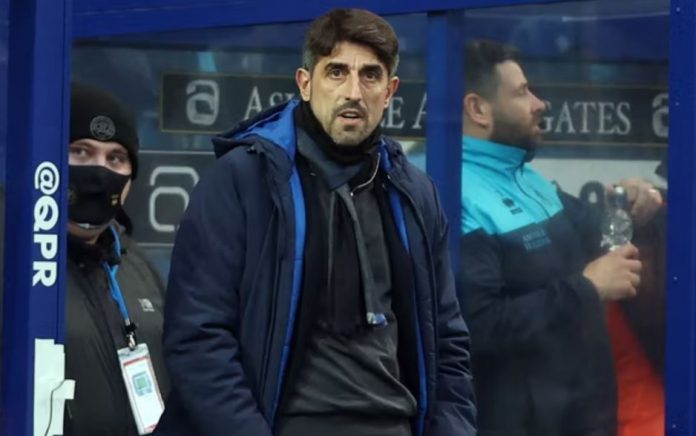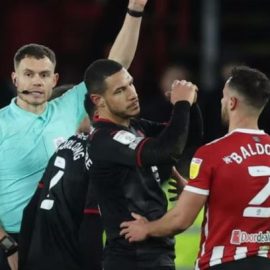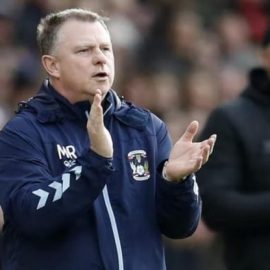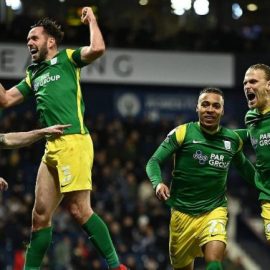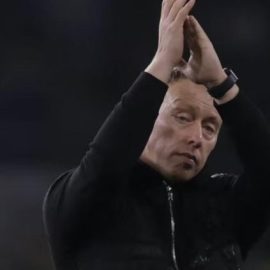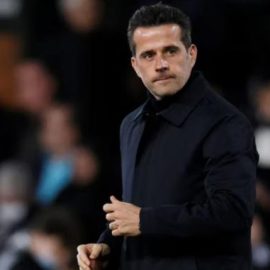As of 6pm on Sunday, the moratorium around Newcastle United FC started. Over the coming days expect to see the words “big club” and much discussion of whether Alan Shearer will stay on in the dugout fill the column inches, as Newcastle become the highest profile club to be relegated from the Premier League in many years.
What may be more pressing than whoever Newcastle’s next manager may be, though, is the level of debt and the heavy wage bill that the Magpies take down into the Championship with them, which could see the North East club becoming the next Leeds.
But, as 52,000 Geordies prepare for visits from Barnsley, Scunthorpe and Peterborough, they should be thankful they’re not one of the 150 faithful Newcastle Blue Star fans, who may see their club cease to exist this week.
The Toon go down
Let’s stay with the bigger Newcastle side first. Much has already been discussed as to why they’ve found themselves in the Championship and, strangely for a pundit who rarely made pertinent point, Alan Shearer’s assessment of the mess was possibly as accurate as you’ll find anywhere.
“It’s not just about today,” he said after the game. “It’s gone on this season, last season, four seasons ago. It’s the culmination of everything. Decisions need to be made sooner or later because, forgive the expression, but every day that goes by another room is burned down and everyone gets a head start on the football club. I’ll give my opinion and it’s up to them where they want to go.”
Since Newcastle stumbled in their Champions League qualifier against Partizan Belgrade in 2003, it’s been a downward spiral. First Bobby Robson was sacked for only managing to take the Toon Army to fifth, then Graeme Sounness and Glenn Roeder came and left. Neither were inspiring appointments but, by the same token, neither were really given time to build.
Then the madness really took over. Sam Allardyce, whose dour and pragmatic style of football was never likely to win over the St. James’ Park faithful, was out the door before last season had even got going. Kevin Keegan, while a popular choice, was always going to be risky given his time out of the game, and once your had a conflict with Dennis Wise as director of football, one of Keegan’s tantrums was never going to be far away.
Joe Kinnear was then plucked from relative obscurity and, despite his opening rant at journalists, may have had just about enough experience to tide the Toon over until the end of the season. Sadly, employing a manager with a history of serious heart problems always had the potential to backfire and Kinnear was taken to hospital when Newcastle needed him most.
Chris Houghton and Colin Calderwood may have made good lieutenants but they never suggested they had the experience or nous to avoid relegation, while Shearer was a desperate last throw of the dice – a rookie manager thrown in at the deep end on reputation alone.
Judging by Newcastle’s insipid, toothless, inept displays at the end of the season, even Shearer’s famed passion wasn’t enough to save them, and his appointment was yet another in a long line of floundering panic moves from owner Mike Ashley.
Ashley’s folly
The sportwear billionaire has probably been somewhat unfairly maligned on Tyneside, although he’s hardly helped himself. Compared to many football club owners, Ashley, at least, has not maliciously run his club into the ground, but rather given the impression that, while he can run a successful retail empire, the complexities of Newcastle United were beyond him.
Ashley’s first mistake was to fail to carry out due diligence on the club. He paid £134m for the club, then sunk in another £110m to reduce the debts to a manageable level. That’s a manageable level, not cleared completely. Newcastle’s financial situation is as precarious as ever.
His plan to introduce a continental style management system, with a director of football for transfers and an emphasis on young stars, was a good idea badly executed. In the long-term it may have proved successful but pitting Wise against Keegan and signings to likes of Xisco soon saw it scrapped.
Then there was the wage bill of £62.475m, the fifth highest in the Premier League. The majority of these contracts didn’t have a relegation clause in them, meaning the likes of Joey Barton could, next season, still pick up their full wage in the Championship and there’s nothing the management can do about it.
This, perhaps, is one of the biggest concerns for Newcastle. It was the high wage bill that did for Bradford when they got relegated and still had to pay the likes of Benito Carbone £40,000 per week. Newcastle’s turnover in 2008 was £99.4m. Wages accounted for around 70% of that figure.
The Magpies will get around £11m in parachute payments but this will only just make a dent in the costs as opposed to easing them, especially when you consider the club made a pre-tax loss of £20.3m last year (an improvement of £34.2m in 2007). Of this loss, £4.6m went to Allardyce and his management team as their payoff when they were sacked.
The question is now how much Ashley is prepared to continue funding the club. Shearer, regardless of whether he stays or goes, has already said the squad will need an overhaul. That will cost money, as will the expensive flops that can’t be shifted off the wage bill.
The problems won’t hit home immediately. If Newcastle can secure an immediate return to the Premier League, the debt is unlikely to be called in, but this is a big ask for a club that needs substantial rebuilding.
Ashley may even find a buyer, although this is another tall order in the current climate, and for a club loaded with debt. On the plus side, the capacity of St. James Park and the loyal fanbase should help cushion the blow somewhat, but there’s no guarantee that Newcastle won’t become another Leeds or Southampton.
Blue Star bust
Meanwhile, across town, the city’s second team, Newcastle Blue Star, look almost certain to go under. They won the Unibond North Division One playoffs but are unlikely to be taking their place in the Unibond Premier. At best, they’ll reform and fall back to the Northern League. At worst they’ll cease to exist.
Their crisis stems from a £61,500 grant from the Football Stadia Improvement Fund to do up their run-down Druid Park home. However, in 2007 they moved to share with Guinness Premier rugby club Newcastle Falcons at Kingston Park. Both Blue Star and the Falcons are owned by businessman David Thompson. Currently Gosforth Rugby Club and the Blue Star Legends team play at Druid Park.
Earlier this month, Thompson, who had been underwriting Blue Star, said he was pulling out of funding the club completely and £100,000 was needed almost immediately to keep the club going. Coincidentally, the FSIF charity, called in the loan £61,500 loan for Druid Park at roughly the same time.
Druid Park, which is owned by Punch Taverns, is to be sold at auction. Newcastle Blue Star have received the cash for a ground they don’t play at, isn’t owned by them and largely has a different sport using the pitch. The financial benefits from the grant, it seems, certainly haven’t gone to Blue Star.
Given that the team averages around 150 spectators, sustaining themselves at Unibond Premier level would be difficult, although given they, until recently, were owned by the same person who controlled the Falcons, their landlords, they should have been more secure than most.
Blue Star have one final meeting with the FA on Monday to save their club. Newcastle United, for all the perilous finances, haven’t reached that stage yet. The supporters may not be fans of Mike Ashley, but at least he’s not pulling the plug on the club. It’s one of many small mercies that Magpies fans will, as likely, be thankful for in the coming months.
Add Sportslens to your Google News Feed!
